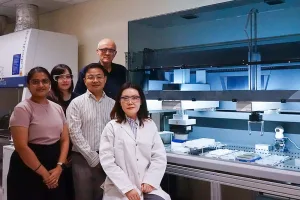Innovative Program Boosts Cancer Care Access for Indigenous Communities
A groundbreaking care coordination and communication program is showing promise in improving access to vital cancer care for Indigenous populations. Researchers at the University of Oklahoma Health Campus detailed their findings in a recent article published in the prestigious New England Journal of Medicine.
The Challenge: Disparities in Cancer Care
Indigenous communities often face significant barriers to accessing quality healthcare, including cancer treatment. These obstacles can include:
- Geographic isolation, making travel to treatment centers difficult.
- Cultural differences and a lack of culturally sensitive care.
- Socioeconomic factors that limit access to resources.
- Communication barriers and a lack of trust in the healthcare system.
A Novel Approach: Care Coordination and Communication
The program developed by the University of Oklahoma team focuses on addressing these barriers through enhanced care coordination and communication. Key components of the program include:
- Dedicated Care Coordinators: Navigating patients through the complex healthcare system.
- Improved Communication: Facilitating clear and effective communication between patients, families, and healthcare providers.
- Cultural Sensitivity Training: Equipping healthcare providers with the knowledge and skills to provide culturally appropriate care.
- Community Partnerships: Building strong relationships with local communities to foster trust and collaboration.
Promising Results and Future Implications
The study suggests that this comprehensive program has the potential to significantly improve cancer care access and outcomes for Indigenous people. By addressing the unique challenges faced by these communities, the program offers a model for reducing healthcare disparities and promoting health equity.
Next Steps
Further research is needed to evaluate the long-term impact of the program and to adapt it for use in other Indigenous communities and healthcare settings. However, the initial findings are encouraging and highlight the importance of culturally sensitive, community-based approaches to healthcare.
Final Overview
This innovative care coordination program represents a significant step forward in addressing healthcare disparities and ensuring that all individuals have access to the lifesaving cancer care they need. By focusing on communication, cultural sensitivity, and community partnerships, the program offers a promising model for improving health equity for Indigenous populations.




+ There are no comments
Add yours